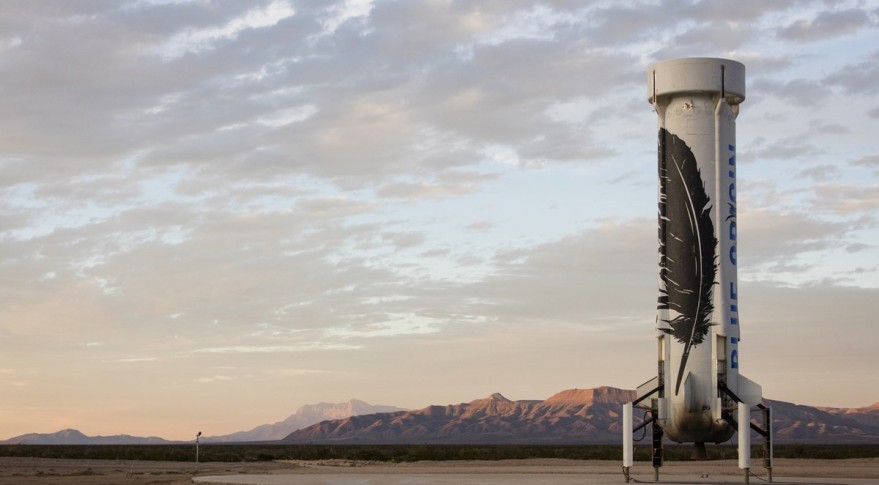Airspace Restriction Hints at Blue Origin Test Flight

WASHINGTON — Blue Origin may be preparing for another test flight of the company's New Shepard suborbital vehicle, based on an airspace restriction published by the Federal Aviation Administration Jan. 21.
The temporary flight restriction notice covers a region of airspace that corresponds with Blue Origin's test site north of Van Horn, Texas. The restriction, between 8 a.m. and 4 p.m. Eastern Jan. 22 and 23, is for "space flight operations," according to FAA, although the notice does not provide any additional information about the nature of the operations.
Blue Origin has not confirmed plans for any test flights, keeping with the company's practice of not announcing tests until after they take place. However, the FAA has issued similar flight restrictions prior to earlier New Shepard flights, including one shortly before the vehicle's last test flight Nov. 23.
On that November flight, New Shepard's crew capsule flew to an altitude of 100.5 kilometers before parachuting to a safe landing. The vehicle's propulsion module made a powered vertical landing using its BE-3 engine, which the company hailed as a milestone in their efforts to develop reusable vehicles.
In a press conference Nov. 24, Blue Origin founder Jeff Bezos said the company planned to fly the vehicle again after performing inspections. "Yes, we'll refly this booster," he said. "This mission was completely nominal and this vehicle is ready to fly again." He said at the time it would be "some number of weeks" before the company would attempt another test flight.
Bezos also said at that press conference that the company planned "the most through test program over the next couple of years that we can possibly do" with New Shepard before beginning commercial flights with people on board. Company officials, though, have suggested that commercial flights carrying research payloads, but not people, could begin later this year.
This story was provided by SpaceNews, dedicated to covering all aspects of the space industry.
Breaking space news, the latest updates on rocket launches, skywatching events and more!

Jeff Foust is a Senior Staff Writer at SpaceNews, a space industry news magazine and website, where he writes about space policy, commercial spaceflight and other aerospace industry topics. Jeff has a Ph.D. in planetary sciences from the Massachusetts Institute of Technology and earned a bachelor's degree in geophysics and planetary science from the California Institute of Technology. You can see Jeff's latest projects by following him on Twitter.

